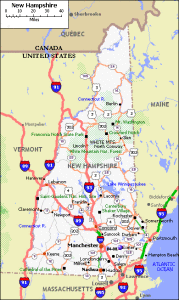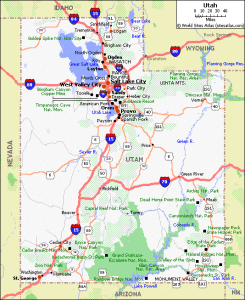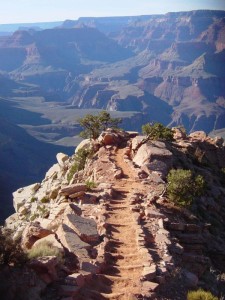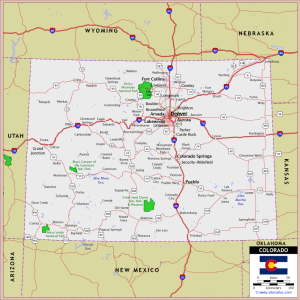Rescue agencies, including the National Park Service, as well as various state agencies, have long questioned whether those in need of rescue, who have created a need to be rescued due to their own negligence, should be billed for those rescue efforts. This is due, in part, to the fact that many such rescues require inordinate time, resources, and risk on the part of the rescuers, as well as the fact that no rescue would be required except for such negligence. See, also, this report.
The ability of a particular jurisdiction to recover search and rescue costs from those rescued varies among the states, and the reasons for which such recovery can occur also vary.
For instance, Hawaii state law permits those who intentionally ignore warning signs or otherwise act recklessly to be charged for the cost of the rescue.
New Hampshire billed a hiker $9334 for his 2012 rescue based on alleged negligence, an action found proper by the New Hampshire Supreme Court. New Hampshire also in 2009 billed a hiker $25,000 for his rescue, later negotiated to a $1000 payment, with the state believing that it had made its point! Also, a hiker in need of assistance was billed $6971 in 2012 by New Hampshire. In 2016, a group of four rescued unprepared hikers will reportedly be billed.
Typically, it is reported, New Hampshire conducts about 180 rescues per year (about 1 every 2 days), and bills those rescued in about 10 instances per year.
Indeed, wilderness rescues are commonplace in the New Hampshire wilderness as shown by this report. Indeed, between 2007 and 2011, the New Hampshire Department of Fish and Wildlife was called out 799 times to assist those engaging in outdoor activities, with 443 being hikers and climbers.
New Hampshire and Utah, beginning in 2015, instituted programs to balance the need for rescue with the costs required for such rescues.
![]() NEW HAMPSHIRE, in an attempt to (1) educate those using the wilderness as to how to act responsibly (and, hence, reduce the need for possible rescue), and (2) provide funding for its rescue efforts, in 2014 passed a law (effective January 1, 2015) authorizing the issuance of a HIKE SAFE card.
NEW HAMPSHIRE, in an attempt to (1) educate those using the wilderness as to how to act responsibly (and, hence, reduce the need for possible rescue), and (2) provide funding for its rescue efforts, in 2014 passed a law (effective January 1, 2015) authorizing the issuance of a HIKE SAFE card.
Those individuals who pay the annual $25 fee for the card ($35 for a family) will not be liable for reimbursement of costs incurred by rescuers due to negligence on the part of the card holder. Money for rescues will come, at least in part, from fees paid for the card. Those who benefit from this program include persons engaged in any outdoor activity in New Hampshire, not just hiking. In 2019, approximately $145,000 was received from sale of the HIKE SAFE cards, during which there were almost 200 rescues.
 However, those engaged in an outdoor activity who create a need for rescue due to reckless or intentional acts may still be liable for payment of such expenses (the previous story suggests that approximately 6-7% of rescues are deemed to result from negligent or reckless actions of those rescued).
However, those engaged in an outdoor activity who create a need for rescue due to reckless or intentional acts may still be liable for payment of such expenses (the previous story suggests that approximately 6-7% of rescues are deemed to result from negligent or reckless actions of those rescued).
For instance, a family of four in October, 2015 required rescue during a New Hampshire hike and, as they did not have a HIKE SAFE card, were billed an estimated $500 for their rescue. And this January, 2017 story, where a hiker was to be billed $1200-1300 for being unprepared for the winter conditions, requiring rescue.
New Hampshire defines negligent and reckless acts as follows:
- A person acts negligently when he or she acts in such a way that deviates from the way a reasonable person would act under similar circumstances.
- A person acts recklessly when he or she engages in highly unreasonable conduct, involving an extreme departure from ordinary care, in a situation where a high degree of danger is apparent.
The HIKE SAFE program includes the following “hiker responsibility code“:
“You are responsible for yourself, so be prepared:
- With knowledge and gear. Become self reliant by learning about the terrain, conditions, local weather and your equipment before you start.
- To leave your plans. Tell someone where you are going, the trails you are hiking, when you will return and your emergency plans.
- To stay together. When you start as a group, hike as a group, end as a group. Pace your hike to the slowest person.
- To turn back. Weather changes quickly in the mountains. Fatigue and unexpected conditions can also affect your hike. Know your limitations and when to postpone your hike. The mountains will be there another day.
- For emergencies. Even if you are headed out for just an hour, an injury, severe weather or a wrong turn could become life threatening. Don’t assume you will be rescued; know how to rescue yourself.
- To share the hiker code with others.”
New Hampshire is promoting the HIKE SAFE program throughout the United States to enhance hiker awareness and safe conduct, with the hope that it will be adopted elsewhere. However, New Hampshire’s search and rescue still operates at a deficit despite the Hike Safe program.
 UTAH, effective July 1, 2015, instituted its own Search and Rescue Financial Assistance Card, also discussed here.
UTAH, effective July 1, 2015, instituted its own Search and Rescue Financial Assistance Card, also discussed here.
Cards are available at the website Rescue.Utah.gov.
The Utah program mirrors that of New Hampshire, as it is intended to provide funding for search and rescue activities, and insulates a card holder from being billed for rescue expenses. As with New Hampshire, the exception is for any need for rescue resulting from reckless or intentional behavior.
 COLORADO has a CORSAR program, the fees for which go to reimburse rescuers for their costs, in which outdoor enthusiasts should participate. But, there is no program in place in Colorado which seeks reimbursement from those who are rescued, with the possible exception of medical assistance and medical transport.
COLORADO has a CORSAR program, the fees for which go to reimburse rescuers for their costs, in which outdoor enthusiasts should participate. But, there is no program in place in Colorado which seeks reimbursement from those who are rescued, with the possible exception of medical assistance and medical transport.
Several alternatives exist to address the possibility of having to reimburse rescue agencies in the event of negligent acts.
The New Hampshire HIKE SAFE program includes many of the attributes of BSA’s Trek Safely training, as well as other policies set forth in the Guide to Safe Scouting.
Scout units conducting activities in New Hampshire and Utah (units either traveling to or located in those states) may find these programs to be of benefit, particularly given the challenging nature of much of New Hampshire’s and Utah’s wilderness recreation areas, and the unpredictability of conducting an activity in such an environment (as shown by a number of stories on the web).
Taking advantage of these programs in New Hampshire and Utah addresses those instances where inadvertent incidents occur during an activity, alleged to be the result of negligence, and which might otherwise result in a request for reimbursement of search and rescue expenses due to such negligence.
While purchase of these cards in both New Hampshire and Utah is stated to be voluntary, having the card in the event of an emergency would seem to be prudent, as opposed to trying to explain why the need for rescue was not the result of negligence on behalf of those in need of rescue.


